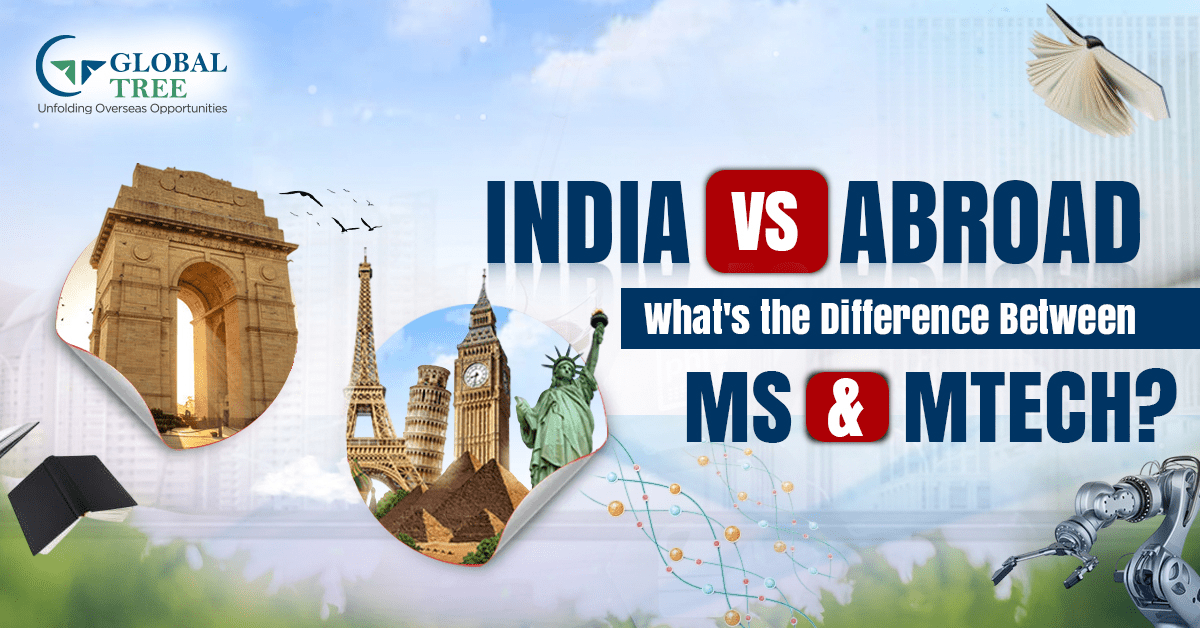Study Masters in Ireland: Top Universities, Courses, Fees & More

- Introduction
- Why Study MS in Ireland?
- Eligibility Requirements to Study MS in Ireland
- Cost and Duration of MS Course in Ireland
- Top Courses to study Masters in Ireland
- Top Ireland Universities for Master’s Programs
- Scholarships to Study MS Courses in Ireland
- Career Scope after Studying MS Courses in Ireland
- Average Salaries after Studying MS Courses in Ireland
- FAQ’s
- Conclusion
Introduction
Embarking on a journey towards a Master's degree is a significant decision that requires careful consideration of various factors. Ireland, with its rich history, vibrant culture, and world-class education system, has emerged as an attractive destination for international students seeking to pursue a Master's degree. In this comprehensive guide, we will explore the reasons why studying for a Master's degree in Ireland is a compelling choice and delve into essential aspects such as eligibility requirements, costs, top courses, universities, scholarships, and the promising career prospects awaiting graduates.
Why Study MS in Ireland?
Global Recognition and Quality Education:
- Ireland is home to several globally ranked universities, such as Trinity College Dublin and University College Dublin, known for their academic excellence and international reputation.
- The Irish education system follows the European Qualifications Framework, ensuring that degrees are recognized and respected worldwide.
English as the Medium of Instruction:
- Studying in an English-speaking environment facilitates effective communication, fostering an inclusive and immersive learning experience.
- The language proficiency gained is an invaluable asset for international students, enhancing their employability globally.
Research Opportunities and Innovation:
- Ireland's commitment to research is evident through initiatives like Science Foundation Ireland, encouraging students to engage in groundbreaking research projects.
- Collaboration with leading multinational companies provides students with real-world applications of their academic learning.
Cultural and Professional Exposure:
- The multicultural environment in Ireland allows students to interact with peers from diverse backgrounds, fostering a global perspective.
- Internship and networking opportunities with industry leaders contribute to students' professional development.
Eligibility Requirements to Study MS in Ireland
Before applying for a Master's program, it is crucial to understand the eligibility criteria in to study in Ireland. Generally, the requirements include:
- Educational Background: Applicants should hold a bachelor's degree with a minimum specified grade in a relevant field of study. Some programs may have specific prerequisite courses or subject requirements.
- English Language Proficiency: Universities typically require a minimum IELTS or TOEFL score for non-native English speakers. Certain institutions may offer English language preparatory courses for students who need to improve their language skills.
- Letters of Recommendation and Personal Statement: The importance of letters of recommendation and a well-crafted personal statement cannot be overstated. These documents should highlight the applicant's academic achievements, research experience, and career goals.
- Work Experience (if applicable): While work experience is not mandatory for all programs, some may prefer applicants with relevant professional experience. The emphasis on work experience is often more pronounced in business-related Master's programs.
- Entrance Exams (if applicable): Certain programs, especially in business and management, may require applicants to take standardized entrance exams such as the GMAT or GRE.
Cost and Duration of MS Course in Ireland
Tuition Fees: The cost of a Master's degree in Ireland varies depending on the university and the chosen program. On average, international students can expect to pay between €10,000 to €25,000 per year. Business and STEM programs tend to be at the higher end of the spectrum.
Living Expenses: In addition to tuition fees, students need to consider living expenses, including accommodation, food, transportation, and other miscellaneous costs. On average, a student may need around €10,000 to €12,000 per year for living expenses.
| Course (Masters) | Fees (indicative) |
|---|---|
|
Medicine and related |
€42,500 – €57,000 |
|
Engineering |
€10,000 – €25,000 |
|
Science and Technology |
€36,000 – €71,000 |
|
Arts and Humanities |
€9900 – €34,000 |
|
Business Analytics |
€12,500 – €19,000 |
Duration of MS Courses: Master's programs in Ireland typically last for one to two years, depending on the program's nature and requirements. Research-based programs may extend beyond two years.
Top Courses to study Masters in Ireland
- Master of Business Administration (MBA): Specializations within MBA programs, such as Innovation and Entrepreneurship, provide students with a competitive edge. Case-study based learning and industry collaborations enhance practical knowledge.
- Master of Science in Computer Science: Ireland's reputation as a tech hub attracts students seeking expertise in areas like artificial intelligence, data science, and cyber security. Collaboration with tech companies offers real-world applications for theoretical concepts.
- Master of Engineering: Engineering programs often integrate hands-on projects and collaborations with industry partners. Specialized tracks in sustainable engineering or biomedical engineering cater to evolving industry needs.
- Master of Public Health: Public Health programs address global health challenges and may include fieldwork or internships with health organizations. Emphasis on epidemiology, health policy, and community health interventions.
- Master of Finance: Ireland's status as financial services hub makes Master's in Finance programs attractive to those pursuing careers in banking, investment, or financial analysis. Networking opportunities with professionals in Dublin's financial district.
Top Ireland Universities for Master’s Programs
| University | QS World Ranking 2023 | Advantages/Strengths |
|---|---|---|
|
Trinity College Dublin, The University of Dublin |
98 |
- Renowned for its historic campus and strong emphasis on research. |
|
|
|
- Offers a wide range of programs in Arts, Humanities, and Science. |
|
|
|
- Strong connections with industry and a global alumni network. |
|
University College Dublin |
181 |
- Leading business school with a focus on innovation and entrepreneurship. |
|
|
|
- Comprehensive health sciences programs and state-of-the-art facilities. |
|
|
|
- Emphasis on global perspectives through international collaborations. |
|
National University of Ireland, Galway |
270 |
- Strong reputation in Medicine, Nursing, and Health Sciences. |
|
|
|
- Recognized for its excellence in Science and Engineering. |
|
|
|
- Prominent in Business, Public Policy, and Law disciplines. |
|
University College Cork |
303 |
- Recognized for excellence in Medicine and Health Sciences. |
|
|
|
- Strong focus on Science and Engineering disciplines. |
|
|
|
- Renowned business school and emphasis on legal education. |
|
Dublin City University |
471 |
- Known for its innovative approach to education and technology. |
|
|
|
- Strong emphasis on Health Sciences and business-related programs. |
|
|
|
- Diverse range of Humanities and Social Sciences offerings. |
|
University of Limerick |
531 |
- Emphasis on practical, industry-relevant education and research. |
|
|
|
- Strong programs in Science, Engineering, and Business. |
|
|
|
- Well-regarded Health Sciences programs with modern facilities. |
|
Maynooth University |
801 |
- Strong focus on Arts, Humanities, and Social Sciences. |
|
|
|
- Recognized for Science and Engineering programs. |
|
|
|
- Diverse offerings in Business, Law, and Education. |
|
Dublin Institute of Technology |
801 |
- Leading institution for business and technology education. |
|
|
|
- Renowned programs in Engineering and Technology. |
|
|
|
- Strong emphasis on Arts, Media, and Design disciplines. |
|
|
|
- Notable programs in Sciences and Health fields. |
Scholarships to Study MS Courses in Ireland
- Government of Ireland Scholarships: The Government of Ireland International Education Scholarship Program supports students from non-EU/EEA countries. These Irish Scholarships cover tuition fees and living costs.
- Institutional Scholarships: Universities offer scholarships based on academic achievement, leadership qualities, and extracurricular involvement. Some programs may have specific scholarships for international students within particular disciplines.
- External Funding: Organizations like the Fulbright Commission and the Irish Research Council provide funding opportunities for international students. Research grants may be available for those pursuing advanced research degrees.
- Industry-Specific Scholarships: Some industries, such as technology and healthcare, may have specific scholarship programs sponsored by companies or industry associations. These scholarships often come with the possibility of internships or mentorship programs.
- Research Grants and Fellowships: Research-focused Master's students can explore grants and fellowships to support their projects. Collaboration with industry partners may lead to funded research opportunities.
Career Scope after Studying MS Courses in Ireland
- Internship and Placement Programs: Many Master's programs in Ireland incorporate internships or work placements as part of the curriculum. This hands-on experience enhances students' practical skills and makes them more attractive to employers.
- Post-Study Work Visa: Ireland offers a favourable post-study work visa scheme, allowing international students to stay and work in the country for a certain period after completing their studies. This provides a valuable opportunity to gain work experience and establish professional connections.
- Networking Opportunities: Studying in Ireland provides students with ample networking opportunities. Engaging with professors, industry professionals, and fellow students can open doors to potential employment opportunities.
- Entrepreneurship Opportunities: Ireland's supportive ecosystem for startups and entrepreneurship opens avenues for graduates to launch their businesses. Incubators and accelerators associated with universities provide valuable resources for aspiring entrepreneurs.
Average Salaries after Studying MS Courses in Ireland
- Information Technology (IT): Graduates with a Master's in Computer Science or related fields can expect competitive salaries in Ireland's thriving IT sector. Average salaries range from €50,000 to €80,000 per year, depending on experience and specialization.
- Business and Management: MBA graduates often command higher salaries, with average earnings ranging from €60,000 to €100,000 per year. Leadership roles and positions in multinational companies may offer even higher remuneration.
- Engineering: Master's graduates in engineering disciplines, such as mechanical or electrical engineering, can anticipate salaries between €45,000 and €70,000 per year, depending on specialization and industry demand.
- Public Health and Healthcare: Professionals with a Master's in Public Health can expect salaries in the range of €40,000 to €70,000 per year, depending on their roles and the specific sector they work in.
- Finance and Accounting: Graduates with a Master's in Finance or Accounting can command salaries ranging from €55,000 to €110,000, depending on their level of experience and specialization. Roles in financial analysis, investment banking, or corporate finance are particularly lucrative.
(Read More: Top reasons why you should choose to study in Ireland)
FAQ’s
1. What are the language requirements for international students in Ireland?
A: Most universities in Ireland require international students, whose first language is not English, to demonstrate proficiency through standardized tests such as IELTS or TOEFL. The minimum required scores may vary between institutions and programs, so it's essential to check the specific language requirements of the chosen university.
2. Can international students work while pursuing a Master's degree in Ireland?
A: Yes, international students in Ireland are generally allowed to work part-time during the academic year and full-time during scheduled vacation periods. The post-study work visa also enables graduates to stay in Ireland for a specific period after completing their studies, allowing them to seek employment opportunities and gain valuable work experience.
3. Are there scholarships available for international students studying in Ireland?
A: Yes, there are various scholarships and funding options available for international students in Ireland. These include government-sponsored scholarships, institutional scholarships offered by universities, and external funding from private organizations and foundations. Prospective students are encouraged to explore scholarship opportunities and check eligibility criteria and application deadlines.
4. What is the typical duration of a Master's program in Ireland?
A: The duration of Master's programs in Ireland typically ranges from one to two years, depending on the specific program and academic requirements. Research-based programs, such as those leading to a Master of Science (MSc) or Master of Philosophy (MPhil), may extend beyond two years, depending on the research project's complexity.
5. How does the Irish education system promote research and innovation?
A: Ireland places a strong emphasis on research and innovation within its education system. Universities collaborate with industry partners, and there are dedicated funding agencies such as Science Foundation Ireland. Many Master's programs incorporate research components, and students often have opportunities to engage in cutting-edge research projects, contributing to Ireland's reputation as a hub for innovation.
Conclusion
Choosing to pursue a Master's degree in Ireland is a transformative decision that opens doors to a world of opportunities. With its renowned universities, diverse courses, and a commitment to research and innovation, Ireland provides an enriching educational experience. The investment in a Master's degree in Ireland not only enhances academic knowledge but also paves the way for a successful and rewarding career. As you embark on this journey, consider the factors discussed in this guide to make informed decisions that align with your academic and professional aspirations. Ireland awaits, ready to welcome and empower the next generation of global leaders and innovators.









